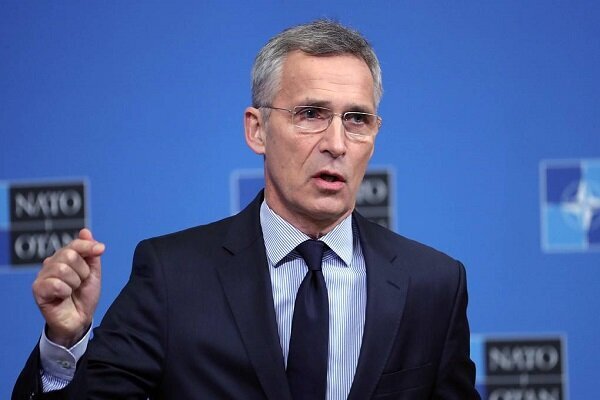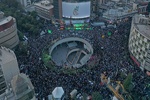The financial package is set to be included in a wider effort to encourage allies to back Kyiv, given that a $60 billion US military aid package is currently facing delays in Congress.
The proposals will be debated upon in a two-day conference in Brussels, commemorating the 75th anniversary of the establishment of the North Atlantic Treaty Organization and gearing up for a summit of alliance leaders in Washington in July.
"We need to shift the dynamics of our support," Secretary General Stoltenberg said as he arrived at the meeting on Wednesday.
"We must ensure reliable and predictable security assistance to Ukraine for the long haul, so that we rely less on voluntary contributions and more on NATO commitments. Less on short-term offers and more on multi-year pledges."
The UK’s foreign minister David Cameron, meanwhile, is urging member states to invest more in defense and increase industrial production, saying it is necessary if the alliance wants Ukraine to defeat Russia.
In a speech, Cameron is expected to encourage NATO allies to step up support for Kyiv and ramp up defense industrial production.
“75 years after its creation, we are celebrating a NATO that has never been stronger or more important, especially following Sweden’s accession last month,” Cameron said.
“With Ukraine closer to NATO than ever, we must sustain the critical support Ukraine needs to win the war,” the foreign secretary stressed, adding that “Allies need to step up and spend more on defense in the face of continued Russian aggression and a more dangerous world.”
Asked about a possible $107 billion NATO fund for Ukraine, the Polish foreign minister, Radek Sikorski, told reporters: “we support the secretary-general’s efforts.”
Up until this point, NATO has primarily concentrated on providing non-lethal assistance to Ukraine due to concerns that a more active involvement could potentially escalate tensions with Russia. Individual member states have contributed billions of dollars in arms through bilateral agreements.
Diplomats have expressed a growing belief within NATO that it is now necessary to establish a more stable framework for military aid to Ukraine, with NATO being the most suitable entity to fulfill this role.
“100 billion for 5 years looks pretty big, but it is a small effort we have to pay in order for Ukraine to win. Otherwise, the price will be much much higher, I assure you,” one senior European diplomat told the Guardian.
“We haven’t yet figured it out how we build this 100 billion for 5 years. We could get to a solution that would also include the bilateral contributions to Ukraine, which could then be bearable for everyone,” the diplomat added.
According to diplomats, NATO is set to assume certain coordination responsibilities from the Ramstein group, a temporary coalition led by the US, which is intended to mitigate the risk of reduced US support in the event of Donald Trump's return to the White House.
Russia on Wednesday accused NATO of returning to a Cold War mindset.
“Today, in relations with Russia, the bloc has returned to Cold War settings,” foreign ministry spokeswoman Maria Zakharova told reporters, Reuters reported.
She said the alliance has no place in a “multipolar world”.
MNA/PresTV



























Your Comment